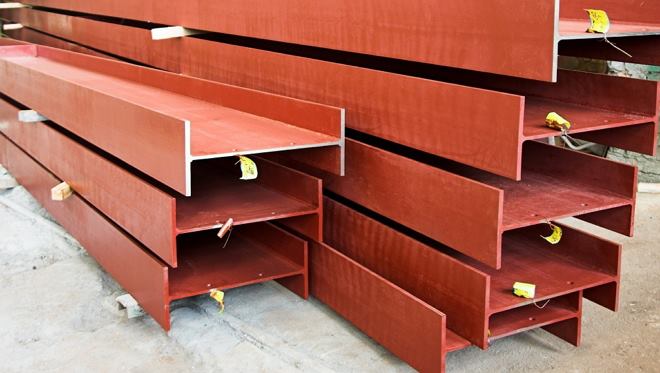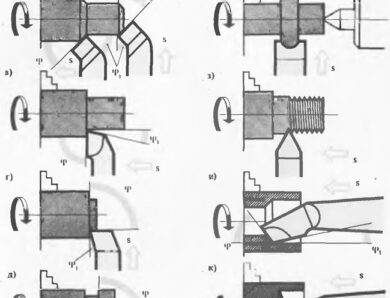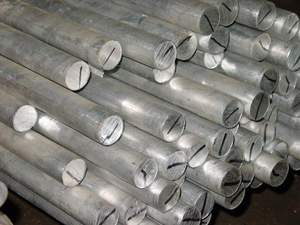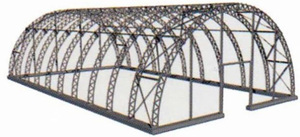Soldering brass - solder (wire), flux: how and what to solder brass
Soldering brass, which allows you to get quality and reliable connections, Is a technological process, which involves the use of a gas burner, as well as special solder. Wire is used as the last, the material of which may be tin or an alloy of this metal with lead. If you study the features of this process, as well as prepare all necessary equipment and consumables, then you can successfully perform it even at home.
The process of soldering brass parts
Conditions and scope of soldering
Before understanding the issue, how to solder brass, it is necessary to study well all features of such technological process. When performing soldering, which is one of the methods of obtaining integral connections, into the gap, located between the mating parts, introduced molten solder, which acts as a fastening element.
An important condition for soldering is that, that solder, for melting which use a gas burner, should melt at a lower temperature, than the material of manufacture of parts, connecting. Such technology (in some cases, it is the only possible way to obtain an integral connection) allows you to reliably solder even dissimilar metals.
Scheme of brass brazing using a gas burner
It is absolutely wrong to compare soldering with such a technological process, as welding, which provides, that will melt not only a special wire solder, but also metal parts, connecting. That's why, that when soldering is mainly exposed to temperature solder, parts characteristics, that are connected and their integrity remains unchanged. This feature allows you to successfully use this technique to connect metal parts, which differ even in very small sizes.
In the meantime, keep in mind, that softer materials are used as solder for soldering, if you compare them with those, which are used to form the weld. This leads to that, that connection, created by soldering, initially less durable and reliable, than welds. And in those cases, when brazing is performed, zinc evaporates from the solder in the process of intensive heating, which leads to the porosity of the molded seam. This porosity of the metal significantly impairs the quality and reliability of the connection. When soldering parts, made of brass, their mutual location is also important. Such details are better connected not butt, but overlap.
For soldering at home, it is possible to do with a manual gas burner with a cylinder capacity 1,8 kw
Metal soldering as a technology, which allows you to get one-piece connections, occupies one of the leading positions, second only to welding in popularity. Without this technology is almost impossible in the electronics industry, where it is used to create electrically conductive connections of elements of various devices and devices. Soldering is the most common way to connect and build wires, on which the electric current will pass further.
If we talk about the most common applications of soldering, then they should be attributed:
- formation of grammatical connections of pipes, made of copper and its alloys, including brass (such pipes are used mainly for the complete set of refrigeration and heat exchange units);
- fastening of carbide plates to the bearing part of the cutting tool;
- connecting parts, significantly different in thickness.
The photo shows the result of soldering a brass tube and a nozzle. Used flux solder P14 and imported burner on pure propane
Using soldering equipment and solder, also perform such a technological operation, as tinning, which allows you to create a reliable anti-corrosion coating on metal surfaces.
Depending on that, by means of solder of what type the soldering is carried out, it can be high- or low temperature. Using a more refractory material when soldering allows you to make connections, which can be operated at higher temperatures. In the meantime, there are some difficulties, which are related to the need to turn to special equipment, which allows you to melt the solder. The use of such an alloy, in particular, quite problematic at home, where a conventional blowtorch is most often used to perform soldering.
features of technology
As in production, and at home you have to face the need to connect the product by soldering, made of brass. It has to do with that, that this alloy of copper and zinc is actively used for the production of elements of plumbing and heating systems, as well as many other products.
Of great importance for obtaining a high-quality and reliable connection of brass products by soldering is the right choice of flux. The usual flux is not suitable for the successful implementation of this process, which contains alcohol and rosin. This flux due to the relatively low activity of the names of the components is not able to dissolve the oxide film, must be present on the surface of the brass product. That is why it is necessary to use a more active flux for soldering brass products, as which zinc chloride is often used.
Composition and application of acidic active benefits
Quite popular fluxes, which are used for brazing performed in salt baths, there is borax and potassium fluoroborate. Such fluxes, the amount of which in the bath solution, usually, does not exceed 5%, provide a good flow of molten solder into the gap between the mating parts.
Choosing the right solder wire is another important task, which must be decided in order, to obtain a quality connection of brass parts. For soldering brass products, which will be further operated in a gaseous medium, you can use popular types of solders based on alloys of silver and phosphorus copper. Such solders, in addition, optimally suited for joining brass products, containing a significant amount of copper.
Brands and areas of application of solders
Brass itself is often used as a solder, but it is necessary to monitor this, that the melting temperature of the filler wire does not exceed the same parameter of the parts themselves, connecting. In those cases, when it is necessary to form a connection of increased reliability by means of soldering, use solid solders, which, when compared to soft type fillers, have higher strength.
Particular attention should be paid to the choice of solder and the technology of soldering in those cases, when it is necessary to solder heterogeneous materials. This should be taken into account, that such materials have different melting points, and can behave completely differently when heated. In particular, from brass at intensive heating zinc begins to evaporate, which negatively affects both decorative, and the strength of the molded joint (it acquires a porous structure).
As the substrate does not burn, you can use a bucket with small pebbles
Avoid active evaporation of zinc from brass, subject to heating during soldering, allow certain technological techniques. The most effective of these techniques is the use of flux, which will perform a protective function, preventing the evaporation of zinc from the structure of brass. Application for soldering of combined solder, which includes not only filler material, but also flux, - Another effective way, which avoids the evaporation of zinc from brass.
Properly selecting solder and soldering technology, you can even assemble parts from such a complex material at home, like stainless steel. It should be borne in mind, that brass solder is not suitable for soldering stainless steel parts, completely different materials are intended for this purpose.
Short instructions
In order to perform high-quality brazing at home, it is not enough to simply study the theoretical basis, it is also advisable to watch videos on this topic. The need for independent implementation of such a process often arises, after all, almost every house has brass products, which are not insured against breakage. Given that fact, that the services of qualified professionals are not cheap, it makes sense to study this process as follows, and on video, which are easy to find online.
Of course, that the parts should be cleaned before soldering
so, the brazing soldering algorithm is as follows.
- Thoroughly cleaned the future joint must be treated with flux, which includes boric and boric acid (1: 1), mixed with water.
- After that, the treated joint should be sprinkled with solder chips.
- Then you can start heating the molded seam with a gas burner or blowtorch. This should be closely monitored, so as not to overheat the parts, which can lead to their deformation.
- Once the solder melts under the influence of the gas burner flame, it will fill the gap between the parts, ensuring their secure connection.
So, brazing is not so difficult, the main thing is to choose the right consumables and strictly follow the above recommendations.




